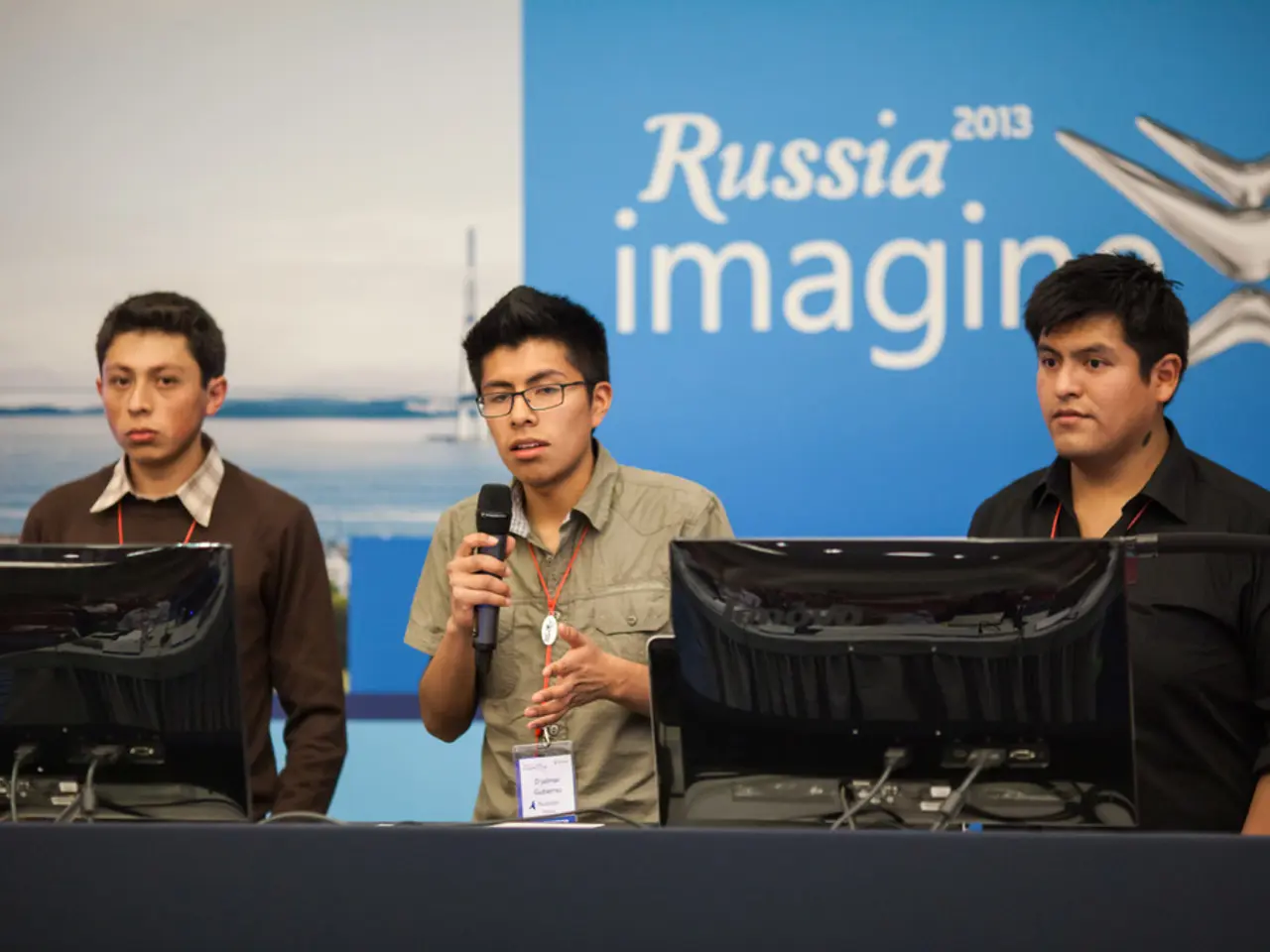Tensions persist between Russia and Ukraine as both nations hold firm to their demands prior to the upcoming Putin-Trump meeting.
The ongoing conflict between Ukraine and Russia, according to political analyst Tatiana Stanovaya of the Carnegie Russia and Eurasia Center, shows no signs of abating in the foreseeable future. The Kremlin leader, Vladimir Putin, believes that time is on his side as Ukrainian forces struggle to halt Russian advances.
Russia's Demands and Positions
Putin's primary demand is full Russian control over Donetsk Oblast, a key part of the Donbas region in eastern Ukraine. He also insists that any peace deal must address what he calls the "root causes" of the war, which include NATO’s eastward expansion and Ukraine’s alleged discrimination against Russian speakers. Essentially, this is Russia's way of demanding Ukraine’s full capitulation, including resuming Russian influence and control over Ukraine.
Russia has made a "package proposal" for Ukraine to halt mobilization efforts, freeze Western arms deliveries, and ban any third-country forces on its soil. The Kremlin leader, Putin, could agree to meet Ukrainian President Volodymyr Zelenskyy but only with a prearranged agenda and predetermined outcomes.
Ukraine's and Western Positions
Ukraine, led by President Zelenskyy, insists on robust international security guarantees and the immediate deployment of an international peacekeeping force to deter further Russian aggression after any peace deal. Zelenskyy has emphasized the need for a "real and lasting" peace, rejecting mere ceasefires that serve only as pauses between renewed Russian attacks.
Ukraine, along with European leaders, has coordinated positions seeking a peace settlement that restores and upholds Ukrainian sovereignty without forced territorial concessions. The Ukrainian peace proposal demands the return of all deported and illegally displaced children and a total prisoner exchange.
Donald Trump's Role and Stance
U.S. President Donald Trump has expressed support for some aspects of Putin’s proposals, including Russia’s demands for territorial concessions in the Donbas region as part of a peace settlement. However, Trump has also signaled the U.S. would be willing to provide security guarantees for Ukraine as part of the peace deal, a position welcomed by some European leaders.
A potential trilateral meeting involving Putin, Trump, and Zelenskyy is being considered to finalize such a peace agreement. Trump has stated there would be "some swapping of territories" as part of any peace deal with Russia.
The Future of the Conflict
Despite these negotiations, analysts such as Sam Greene of King's College London suggest Putin could accept a temporary truce to win Trump’s sympathy and achieve broader goals. However, Tatiana Stanovaya of the Carnegie Russia and Eurasia Center argues Putin won't budge on his goals and the Russian side wants Kyiv to surrender. The likely scenario, according to Stanovaya, is that this peace effort will fail once again.
Russia also demands Ukraine ban the "glorification and propaganda of Nazism and neo-Nazism" and dissolve nationalist groups. Ukraine's peace proposal opposes recognizing any Russian territorial gains. Putin sees a possible meeting with Trump as a chance to negotiate a broad deal that would cement Russia's territorial gains, including the "international legal recognition" of its annexations of Ukraine's Crimean Peninsula and certain regions.
In summary, the key points are Russia’s insistence on control over Donetsk Oblast and addressing its security concerns defined as NATO expansion and the status of Russian speakers, Ukraine’s demand for security guarantees and an international peacekeeping presence to prevent future conflict, and Trump’s push to go directly to a final peace agreement that likely includes territorial compromise, contrasting with Ukraine’s and European leaders’ preference for a sustainable, sovereignty-respecting resolution.
- The ongoing war-and-conflicts between Ukraine and Russia have become an essential topic in policy-and-legislation discussions, particularly concerning NATO’s eastward expansion and the rights of Russian speakers.
- The future of the conflict's resolution is unclear, with some analysts suggesting temporary ceasefires might be a diplomatic strategy for Russia (Putin) to achieve broader objectives, while others argue that the Russian side will not compromise on its demands for full control over Donetsk Oblast and Kyiv's surrender.





